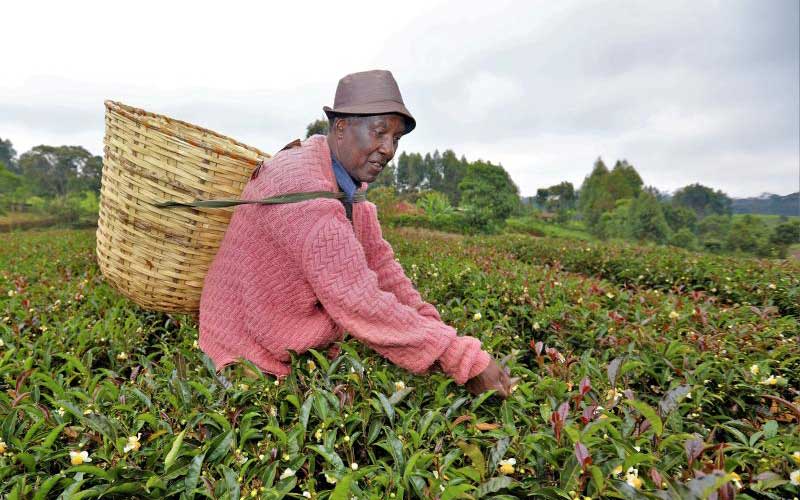×
The Standard e-Paper
Stay Informed, Even Offline

Horera Tea Company founder Robert Murimi picks purple tea at his farm in Ragati, Mathira West, Nyeri County, last year. [File, Standard]
Smallholder tea production could decline substantially in the next one year as many farmers will not be applying top dressing fertiliser after annual bulk procurement was cancelled.